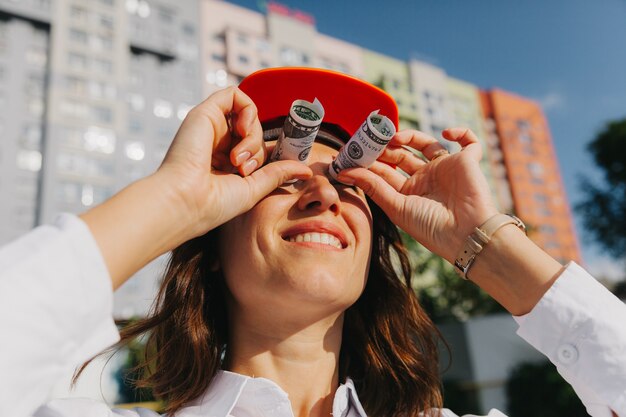Your Guide to How To Avoid Cataracts
What You Get:
Free Guide
Free, helpful information about Cataract FAQ and related How To Avoid Cataracts topics.
Helpful Information
Get clear and easy-to-understand details about How To Avoid Cataracts topics and resources.
Personalized Offers
Answer a few optional questions to receive offers or information related to Cataract FAQ. The survey is optional and not required to access your free guide.
Protecting Your Vision: Strategies to Prevent Cataracts
Cataracts can cloud more than just your vision—they can obscure your quality of life as well. As prevalent as they are, understanding how to avoid cataracts should be a top priority for anyone keen on preserving their eye health. Here, we explore effective strategies to prevent cataracts with a focus on general wellness, lifestyle modifications, and eye-friendly practices.
🌞 Understanding Cataracts and Their Causes
What Are Cataracts?
Cataracts are opacities that form in the lens of the eye, leading to cloudy or blurred vision. These changes typically occur slowly and can affect one or both eyes. As they develop, cataracts can hinder daily activities such as reading, driving, and even recognizing faces.
Common Causes of Cataracts
While aging is the most common cause, there are multiple additional factors to consider:
- Genetic Predisposition: Certain genetic factors can increase susceptibility.
- Exposure to UV Rays: Ultraviolet light from the sun is a known risk factor.
- Medical Conditions: Conditions like diabetes can contribute to cataract formation.
- Lifestyle Factors: Smoking and excessive alcohol consumption can accelerate cataract development.
- Medications: Long-term use of corticosteroids and other medications may increase risk.
Understanding these causes is the first step in mitigating your risk of cataracts.
🥦 Diet and Nutrition: Feeding for Eye Health
Key Nutrients for Vision Protection
A healthy diet plays a critical role in preventing cataracts. Emphasizing certain nutrients can bolster eye health and slow cataract progression.
- Antioxidants: Consuming antioxidants such as vitamins C and E may protect the eyes from cataract formation. These substances help combat oxidative stress, which can damage lens proteins.
- Lutein and Zeaxanthin: Found in leafy greens and yellow vegetables, these nutrients are associated with a lower risk of cataracts.
- Omega-3 Fatty Acids: Common in fatty fish, omega-3s support overall eye wellness.
- Zinc: Found in foods like nuts and seeds, zinc is crucial for maintaining the retina's health.
To naturally include these nutrients in your diet, consider integrating:
- Leafy Vegetables: Kale, spinach, and collard greens are packed with lutein.
- Citrus Fruits: Oranges and grapefruit offer ample vitamin C.
- Nuts and Seeds: Almonds and sunflower seeds are rich in vitamin E.
- Fish: Salmon and sardines provide abundant omega-3s.
🕶️ Protecting Your Eyes from Harm
The Importance of UV Protection
Ultraviolet light can damage the eyes over time. To mitigate this risk, always wear sunglasses with UVA and UVB protection when outdoors. Opt for wrap-around styles for extra protection.
Reducing Blue Light Exposure
In our digital age, blue light emanating from screens can strain eyes and potentially harm them over time. Follow these guidelines to protect your vision:
- Utilize night mode or blue light filters on screens.
- Follow the 20-20-20 rule: every 20 minutes, look at something 20 feet away for 20 seconds.
- Consider wearing blue light filtering lenses, especially if you spend extended periods in front of screens.
Eye Safety in the Workplace
Those working in environments with potential eye hazards should adhere to safety protocols, such as wearing protective goggles or face shields.
🚭 Lifestyle Choices: Habits That Support Eye Health
Quit Smoking
There's consenus that smoking significantly increases the risk of cataract development due to toxic substances that harm the lens. Quitting smoking at any age can improve overall health and reduce the risk of cataracts.
Moderating Alcohol Intake
Excessive alcohol consumption has been linked to cataract formation. Moderation is key; if you choose to drink, do so in moderation to reduce eye health risks.
Regular Eye Check-Ups
Regular visits to an eye care professional can help detect early signs of cataract development and other eye issues. Eye exams can also uncover other conditions such as glaucoma and macular degeneration.
🏃♀️ Incorporating Exercise for Better Vision
How Physical Activity Helps
Regular physical activity can lower the risk of several conditions related to cataracts, such as high blood pressure and diabetes. Staying active helps maintain a healthy weight and reduce inflammation throughout the body, including the eyes.
- Aim for activities that get your heart rate up, like brisk walking, cycling, or swimming.
- Even moderate exercise, such as yoga or gardening, can be beneficial for maintaining overall health and mitigating cataract risk.
🤔 Summary: Top Tips to Prevent Cataracts
- 🥬 Eat for Your Eyes: Incorporate antioxidants, lutein, and omega-3s to support vision.
- 🌞 UV Protection Is Key: Wear sunglasses with UVA/UVB protection.
- 💻 Limit Screen Strain: Use blue light filters and abide by the 20-20-20 rule.
- 🚭 Make Healthy Choices: Quit smoking and moderate alcohol consumption.
- 🏥 Regular Check-Ups: Schedule and attend regular eye exams.
- 🏃♀️ Stay Active: Incorporate regular exercise into your routine.
Bringing It All Together
Preventing cataracts begins with understanding the risk factors and making informed lifestyle choices. By nourishing your body with the right nutrients, protecting your eyes from harmful rays, and maintaining a healthy lifestyle, you can substantially lower your risk of developing cataracts. Prioritize regular eye check-ups to catch and manage any potential issues early on. Embrace these guidelines and take proactive steps today toward a clearer, brighter tomorrow.
What You Get:
Free Cataract FAQ Guide
Free, helpful information about How To Avoid Cataracts and related resources.

Helpful Information
Get clear, easy-to-understand details about How To Avoid Cataracts topics.

Optional Personalized Offers
Answer a few optional questions to see offers or information related to Cataract FAQ. Participation is not required to get your free guide.


